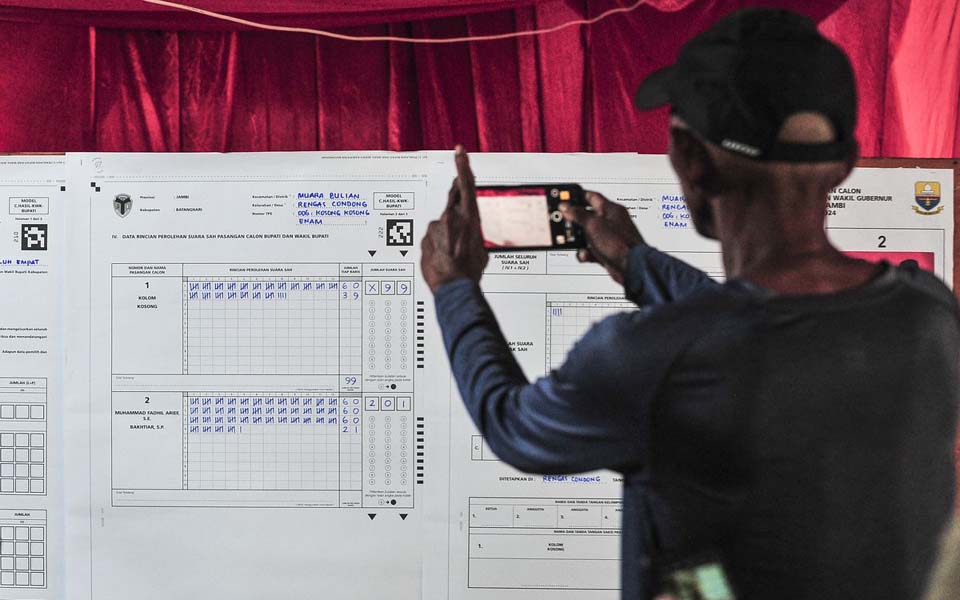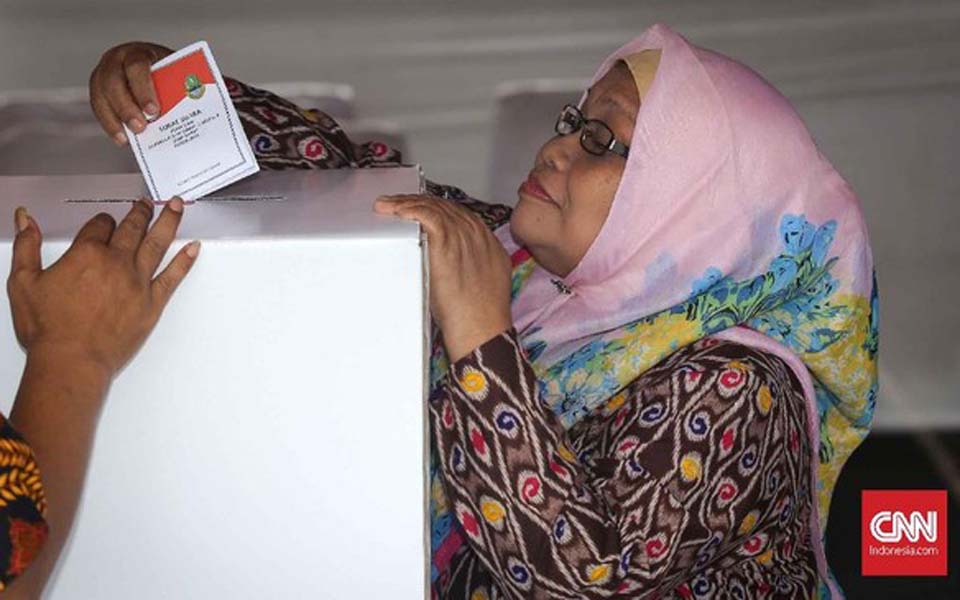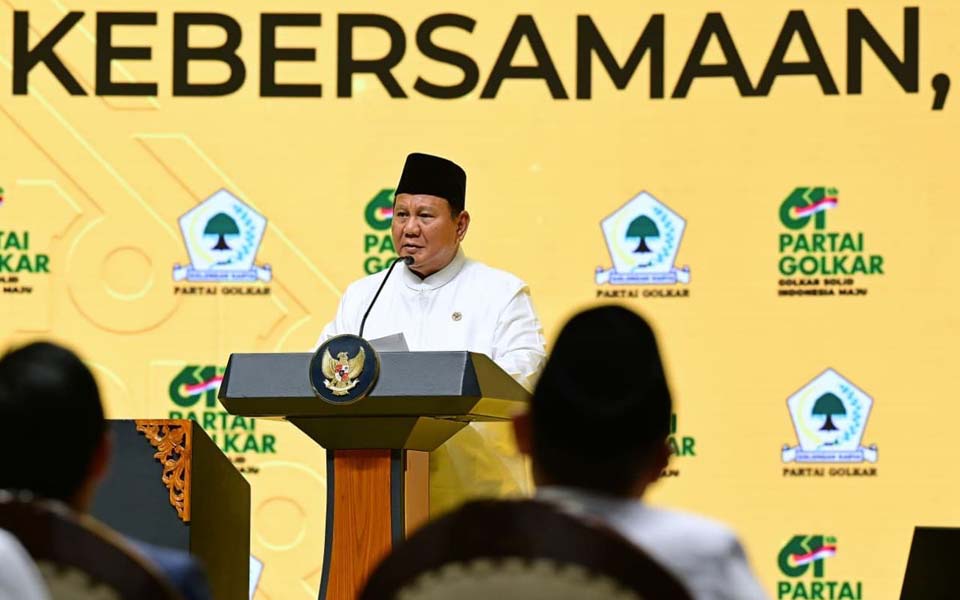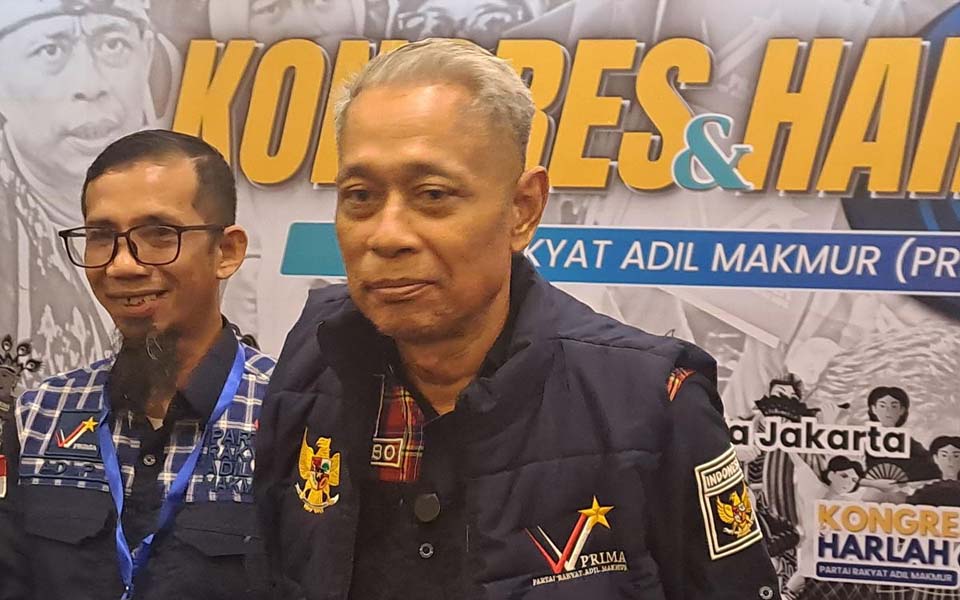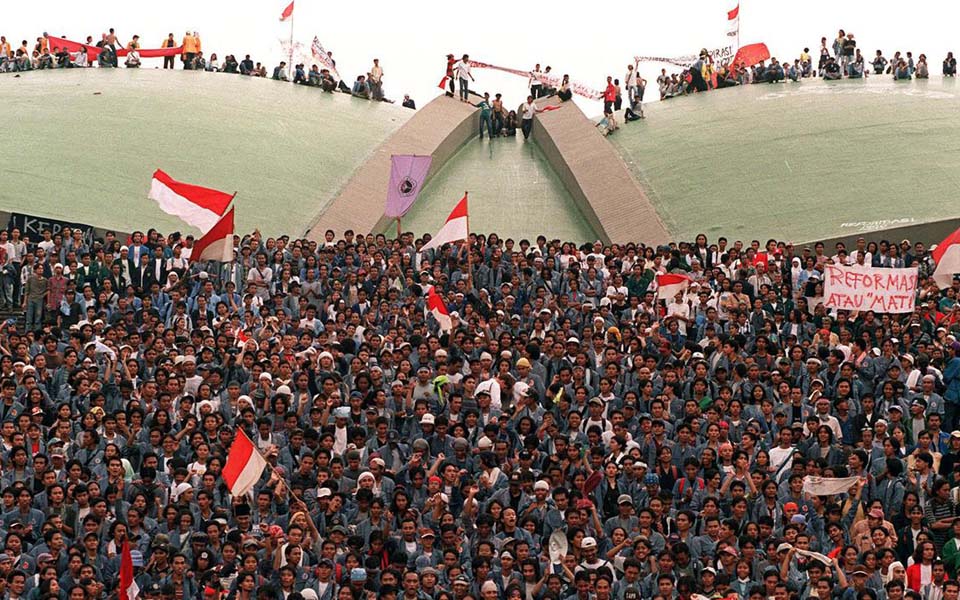Indriyani Astuti – The General Elections Commission (KPU) has finalised the hundreds of candidate pairs which will compete in the simultaneous election of regional heads (pilkada) on December 9.
The State Research Institute has found a classical problem, namely pragmatism on the part of political parties in the recruitment of prospective local leaders which have the potential to create local level political dynasties.
The Institute found 124 candidates who are affiliated with political dynasties who are running as regional heads. They comprise 57 candidate regents and 30 candidate deputy regents, 20 candidate mayors and eight candidate deputy mayors and five candidate governors and for candidate deputy governors.
If classified based on gender, there are 67 men and 57 women candidates. Out of the 57 women, 29 are wives of incumbent regional heads.
“One-hundred and twenty-four political dynasty candidates are spread evenly across 270 regional districts”, said State Research Institute Director Akbar Faisal in a press release received by Media Indonesia, on Monday October 12.
Faisal said that the growth in political dynasties follow the same pattern or model and continues to be maintained.
First, presidents who back family members. This he said can be seen from the nomination of President Joko “Jokowi” Widodo’s oldest son Gibran Rakabuming and the president’s son-in-law Bobby Nasution in the December elections.
Second, husbands who put forward their wives as candidates such as the wife of Azwar Annas who is running in Banyuwangi. “After this, there are still 29 more wives of incumbents”, said Faisal.
Third, contests between political dynasties. As an example Faisal citied the regional election in South Tangerang which are being contested by three tickets, namely the daughter of Vice President Ma’ruf Amin, a cousin of Defense Minister Prabowo Subianto and a relative of Banten Governor Ratu Atut.
“Dynastic contests are not just between dynasties, but occur ‘internally’ within dynasties as is happening in the regencies of Pangkajene and Kepulauan (Pangkep), namely within the dynasty of incumbent Regent Syamsuddin A Hamid”, explained Faisal.
Faisal said that South Sulawesi province is the region with the largest number of candidates from political dynasties with a total of 12 candidates. This is followed by North Sulawesi with 11 candidates covering four regencies and three municipalities.
Meanwhile the regions with the third and fourth most candidates from political dynasties are Central Java with 10 candidates spread over seven regencies and two municipalities followed by East Java with nine candidates spread across seven regencies and two municipalities.
The State Research Institute also found that there has been an increase in the number of political dynasties. This, according to Faisal, is a result of Constitutional Court ruling Number 33/PUU-XIII/2015 [which annulled a clause in the election law barring family members of incumbents from running].
Prior to this ruling, the number of candidates from political dynasties between 2005-2014 was only 59. During the simultaneous regional elections in 2015, 2017 and 2018 there was a drastic increase to 86 candidates affiliated with political dynasties.
“During the December 2020 simultaneous pilkada the number of candidate regional heads [from political dynasties] swelled to 124 candidates”, said Faisal.
The institute also found that the Golkar Party was in first place with 12.9 percent of candidates from political dynasties. This was followed by the ruling Indonesian Democratic Party of Struggle (PDI-P) with 12.4 percent and the National Democrat Party (NasDem) with 10.1 percent.
In terms of parties backing regional candidates who are not leading party members, NasDem is in top position with 13.1 percent followed by the PDI-P with 11.7 percent and the People’s Conscience Party (Hanura) with 9.7 percent.
“The political parties have yet to succeed in preparing regional leadership candidates [from within their own ranks]. The political parties’ pragmatism is shown by how they recruit people who are not leading party members. The recruitment function, which is not working, is ending in the flourishing of political dynasties”, said Faisal. (P-2)
[Translated by James Balowski. The original title of the article was “Dinasti Politik Sodorkan 124 Calon Kepala Daerah ke Pilkada”.]






